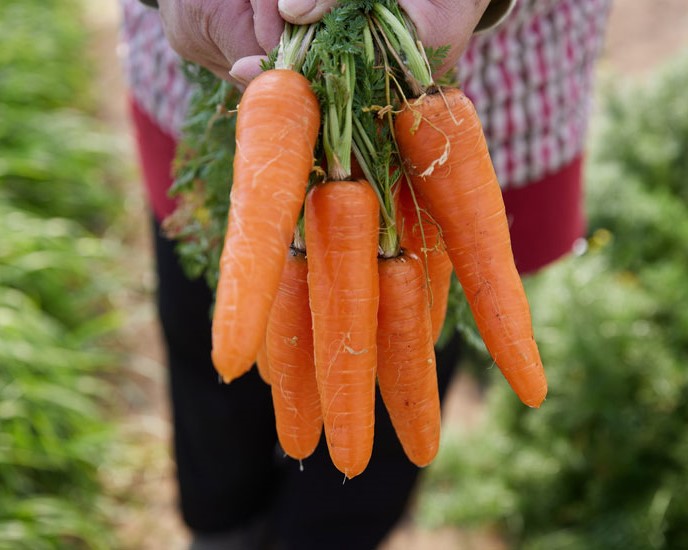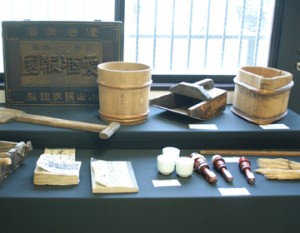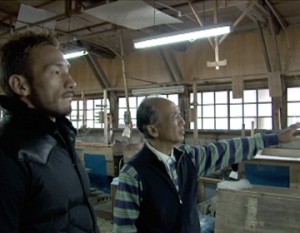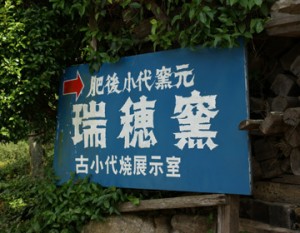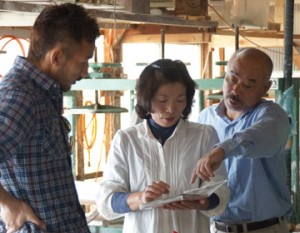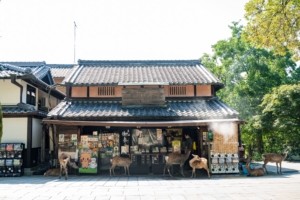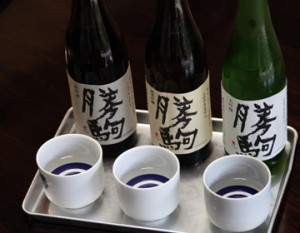Ebihara Farm is located in Shimotsuke City, Tochigi Prefecture, the largest producer of kanpyo in Japan. With the name “Ebi Vegi,” the farm has been receiving orders directly from chefs at famous restaurants all over the country, and has attracted much attention in the industry. What kind of vegetables do the professionals love to use in their dishes?
Vegetables used for the coronation banquet, highly praised by professionals

Shimono City is located in the south-central part of the prefecture. Facing Utsunomiya City to the north, Shimono City is the smallest city in the prefecture in terms of area, but it has convenient access to Tokyo, with three stations that offer direct train service to the Tokyo metropolitan area. The land is flat, with little difference in elevation, and snowfall is rare in winter. The climate is mild throughout the year, and more than half of the city is covered with rice fields. The city is a thriving agricultural area, producing Japan’s largest amount of kanpyo (dried gourd), spinach, cucumbers, tomatoes, and other agricultural products.
Ebihara Farm is located in Shimono City. This is one of the local farmers who have been growing vegetables in this area for generations.
You won’t find them in supermarkets. Ebihara Farm’s “Ebi Vege” vegetables

At first glance, Ebihara Farm looks like an ordinary farmhouse. The rows of greenhouses give a sense of size, but there are neither state-of-the-art facilities nor a lot of farm equipment. However, the farm is visited by many connoisseurs, including chefs from famous restaurants and hotels in the Tokyo metropolitan area, as well as buyers from department stores, and they conclude contracts to purchase vegetables directly from the farm. In 2019, at the banquet held at the Hotel New Otani to mark the Emperor’s accession to the throne, Ebihara Farm’s vegetables were used as the main course. The vegetables from Ebihara Farm are so highly regarded for their taste that they were used as an accompaniment to the main dish.
Vegetables grown at Ebihara Farm are not shipped to the market, but are sold directly to restaurants, hotels, and wedding halls. The farm grows more than 110 varieties of vegetables per year, and produces and sells them according to the type and quantity of vegetables requested by each client.
Since the producers sell directly, Ebihara Farm also sets the sales price. It is usually taken for granted that the producer sets the selling price, but this is not the case in the world of agriculture. It is actually a hurdle for producers to set their own desired prices for vegetables and continue to sell them.
Farmers “decide” the price of their own vegetables

Vegetables sold at supermarkets basically go through “central wholesale markets” located throughout Japan. Vegetable growers purchase the harvested vegetables at the central wholesale market, and supermarkets and retailers decide the price through auction and negotiation with the wholesalers at the market. Supermarkets and retailers then place the vegetables on store shelves at the purchase price, plus their own costs and profits. The price that we, the general public, purchase is usually higher than the price at which the farmer first sold the produce to the market.
This may sound to some like a disadvantage to using the market to sell vegetables. However, crops are natural. Production increases or decreases depending on climate changes. Moreover, vegetables do not last forever, so even if they are harvested in large quantities, if they are not sold within a certain period of time, they must be disposed of. If the produce is to be shipped to the market, there is a system called “whole purchase,” under which all the produce is purchased regardless of the quantity, thus eliminating the risk of waste.
If the produce is to be sold without going through the market, this also requires time and effort and costs. Even if you sell at local direct sales outlets, there is the risk of unsold products, and in some cases, if you sell by mail order, you will have to bear the shipping costs. It is not always possible to find restaurants that will contract directly with you immediately, and the number of restaurants needed per store may not be that large. Furthermore, they have to do all the paperwork and negotiations associated with sales and sales channel expansion, and sometimes even handle complaints themselves. They also need know-how. However, if all the products are purchased at the market, even if the price drops a little during periods of high supply, a minimum profit is secured, and the company can concentrate on production.
One way to concentrate on production is to produce a lot of a small number of items efficiently. It is not possible to say for sure which is better or worse, shipping to the market or not, but it is not easy to sell without going through the market, apparently.
What is the “shrimp veggie” vegetable that surprises and impresses you?

Ebihara Farm is run by Hidemasa Ebihara, the representative of the company, his wife Tomoko, his son Hiroaki and his wife, his daughter Chiaki and her husband, and their family working together. When we were given a tour of the farm, they fed us vegetables that had been quickly washed on the spot. The carrots were firm and chewy, with a rich sweetness that spread in my mouth as I bit into them. The turnips were juicy and more like fruit than vegetables. I was even impressed by how sweet turnips are.
I wondered if they were growing a special variety of turnips with such a flavor, but it turns out they are not. The vegetables are not rare; they are sold everywhere,” he said. The only difference is the way we make them,” Ebihara laughs.
The secret to producing flavorful vegetables is “water content.

The Ebihara family has been a farmer for generations, and until 40 to 50 years ago, they grew kanpyo (dried gourd) and spinach like the surrounding farmers. By Mr. Ebihara’s generation, the family began to make a living mainly from cucumbers, but the amount produced was small. They only produced what they were asked to sell.
From that time on, Mr. Ebihara had doubts about mass production that focused on appearance and price, and wanted to value the original taste and aroma of vegetables. Through repeated research, he discovered the importance of controlling moisture content.
It is common for farmers to want to grow and ship their produce as quickly as possible. If they can grow vegetables faster and ship them earlier than when they are in season, they can increase the value of their products. However, Mr. Ebihara realized that growing vegetables quickly may not bring out their true flavor, so he decided to take the time to grow them. Through further trial and error, he realized that “the amount of water” affects the flavor and aroma of many vegetables.
He arrived at the conclusion that he should use greenhouses to secure the amount of sunlight while minimizing the amount of water used. This slowed down the speed of vegetable growth. The soil appears dry, and if water is not given until the very edge where it will not wither, the vegetables themselves will look around for water in the soil and try to store it in themselves. The reason for growing in greenhouses is to prevent vegetables from receiving unintended moisture from dew at night as well as rain. As a result of this thorough moisture control, the vegetables grow fresh and have a strong flavor and aroma.
As they continued to produce little by little in pursuit of flavor, it was the chefs who recognized the taste. It all started when they were told that the turnips and carrots were “delicious. The delicious taste led Mr. Ebihara to ask himself, “Can I make them even more delicious? He began to think, “Can I make them even tastier?
The reputation of “rich flavor,” “sweetness,” and “juiciness” spread from chef to chef. We did not advertise at all. As the business continued, requests for such vegetables began to appear. In order to respond to the requests of the chefs, they gradually increased the varieties of cucumbers, the mainstay of their business, and before they knew it, they were handling more than 110 varieties a year. In addition to vegetables, they also grow 15 to 20 kinds of herbs.
Cultivate vegetables by hand in “small quantities and many items” facing vegetables
Ebihara Farm’s cultivation method is “small-quantity, multi-product cultivation,” in which a large variety of vegetables are grown little by little, rather than efficiently growing a large number of a limited number of varieties; about 14 varieties of vegetables are grown simultaneously in one greenhouse, and once the harvest is finished, another vegetable seed is planted. The goal is to be able to harvest 30 to 40 varieties of vegetables at any given time in any season, and to be able to “make a salad bowl out of Ebi Vege’s vegetables.
It was not an easy road to be able to grow so many varieties. We’ve made a lot of mistakes getting to this point,” Ebihara says with a wry smile. There are 100 to 150 varieties of carrots. I would choose a seed from among them and actually try to grow it. Even if you succeeded in growing one variety, it does not necessarily mean that the same method will produce a “delicious” result with a different variety. The number of vegetables that have been produced satisfactorily and are still in production is said to be less than 30% of the varieties they have tried growing in the past.
The more varieties there are, the more difficult it is to understand how to grow them. Even so, they do not use efficient cultivation methods that rely solely on machines and chemical fertilizers. All they have available for cultivation and harvesting is a management machine and a tractor. Cultivation and harvesting are done by hand by the Ebihara family and a part-time staff of about 17 people. In order to grow “tasty vegetables,” it is necessary to carefully select the best cultivation methods by carefully examining each seed and determining the delicate conditions of moisture, fertilizer, temperature, humidity, and other factors. The repetition of this process leads to the taste of “ebibegi,” which is chosen by numerous chefs. We do not leave it up to the market, but rather, we release products that we are satisfied with to the world. This may be the vegetable philosophy and pride of Mr. Ebihara, his family, and his staff.
Taste and love of vegetables for the next generation

Ebi Vegi” vegetables and herbs are used for cooking at nationally renowned hotels and restaurants such as Hotel New Otani and Ritz Carlton Nikko, and are also sold at Isetan Shinjuku and Ginza Mitsukoshi. Although not sold in supermarkets, you can order vegetables from the “Ebi Vegi Hanpukai” program.
The number of customers who have come to know the reputation and taste of “Ebi Vegi” and are requesting sales of the vegetables is increasing year by year. In order to meet the demands of each chef, the company is actively cultivating new varieties. Because farming is a natural process, it is not always possible to ship as much as requested. Still, there are many suppliers who are willing to wait for alternative products or harvests. They also bear the shipping costs and still order what they want. This is because of their overwhelming trust in the taste of our products.
Ebihara Farm has always and will always aim to “grow vegetables that people who use them will recognize as delicious. The farm will soon be replaced by my sons,” he said. But it would be best if people who understand that our vegetables are delicious eat them, and if that leads to people continuing to eat them,” says Ebihara.
It is said that it is difficult in the industry to make a business by selling vegetables without going through the market. It was not any special management technique that made it possible. It was simply the presence of “delicious vegetables. When he talks about vegetables or looks at the people who eat them, Mr. Ebihara’s face is one of genuine happiness. Looking next to him, you can see the same expression on the face of his son, Hiroaki. It seems that Mr. Ebihara’s deep love for vegetables has been passed on to the next generation.



